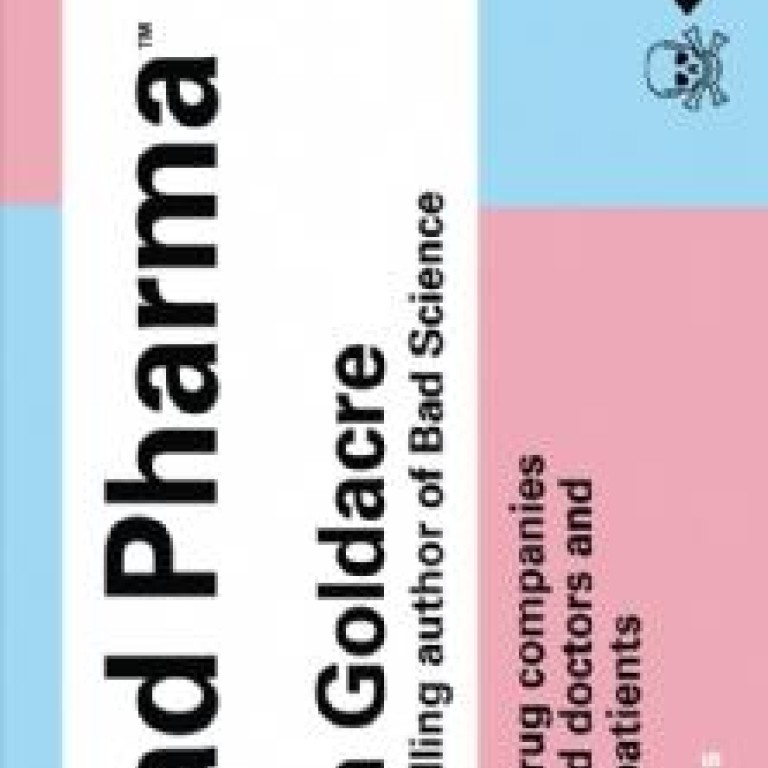
Book review: Bad Pharma, by Ben Goldacre
In America, a popular media doctor, Drew Pinsky, went on air to praise the antidepressant Wellbutrin. Whereas other antidepressants lowered libido, this drug "may enhance" sexual arousal.
Bad Pharma: How Drug Companies Mislead Doctors and Harm Patients
by Ben Goldacre
Fourth Estate

What his listeners didn't know was that Pinsky had been paid US$275,000 by GlaxoSmithKline "for services to Wellbutrin".
They might never have found out if the US Justice Department hadn't taken GSK to court for illegal marketing and failing to report drug safety data. The nine-year investigation led to a US$3 billion fine. This example doesn't make it into Ben Goldacre's , an account of how the US$600 billion drug industry, doctors, academics, regulators and medical journals have let patients down. But it is by no means extraordinary.
is a thorough piece of investigative medical journalism. Goldacre's indignant passion, his careful gathering of evidence and his use of stories, some of them personal, bring the book to life.
His tales of drug companies buying the opinion of doctors is not the most alarming of his revelations. Goldacre sets out clearly what is wrong with the way drugs get on to the market. New drugs are tested by the companies that make them, often in trials designed to make the drugs look good, which are then written up and published in medical journals. Unless, that is, the company doesn't like the result of the trial (maybe it shows the drug not working or having severe side effects), in which case this result might be hidden. Regulators should have all the data on a drug's effects but they often don't share it, so researchers can't study it.
The book gives examples of regulatory bodies handing over pages of blacked-out results to academics trying to collect data from unpublished trials, the excuse for non-disclosure being commercial sensitivity. Companies pay doctors to extol the virtues of their drugs on the conference circuit and fund patient groups to lobby regulators to approve new drugs.
Doctors generally want to do the best for their patients, but they can't know what that is if much of the data on clinical trials of drugs is missing or distorted. The editors of medical journals want to publish good research but know, as Goldacre says, that when companies test their new drug against other treatments, they don't always play fair. It's no surprise that most published trials funded by drug companies show positive results.
Pharmaceutical companies are, after all, not charities. There is evidence that companies spend much more on marketing than they do on research and development.
Some of what Goldacre wants to see is happening - in the US, the Sunshine Act will mean companies must say how much they have paid doctors and for which activities. Since this book's publication GSK has already announced it will make all its trial data available. Perhaps Goldacre's medicine is working.
